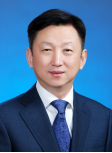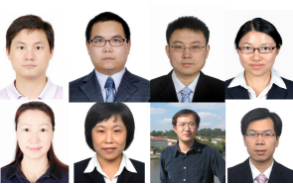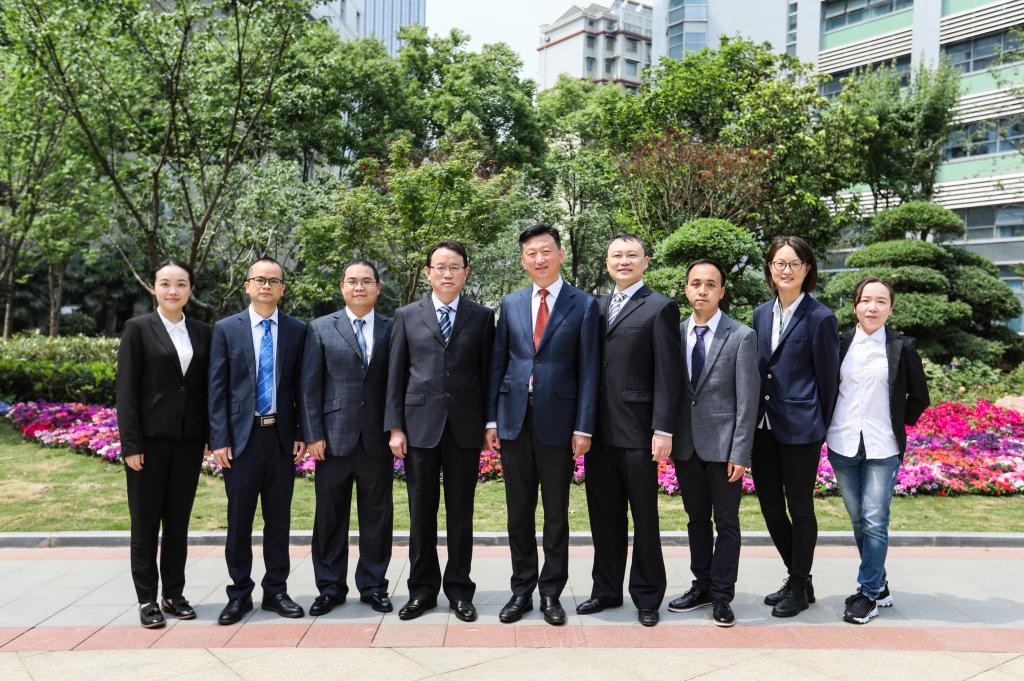----Functional Glia-Neuron Coupling & Ischemic Neuro-Protection
A. Introduction of the Team
The team includes 1 Chinese Academician of Science, 2 national distinguished young scientists, 1 Changjiang Scholar, 2 chief scientists of 973 project.
Academic Leader: Prof. Dr. WANG Wei, the Dean of Tongji Hospital, Head of the Neurology Department.
 Prof. WANG Wei acquired his master Degree in medicine in The Third Military Medical University and Ph.D. in Chongqing Medical University, a visiting scholar in the Dept. of Neurology University of Heirich-Heine, Germany where he acquired his second Ph.D. Prof. WANG was awarded the Excellent Young Scientist Fellowship in 2004 and Changjiang Scholarship in 2009 by Ministry of Education. In 2017, he won the National Natural Science Award from the State Council of the People's Republic of China. He was the editor-in-chief of “Nature Review Neurology”, and “Journal of Neuronal Damage and Functional Reconstruction”, deputy director of Society for Neuroscience of China and Associate director of Medical Society of China.
Prof. WANG Wei acquired his master Degree in medicine in The Third Military Medical University and Ph.D. in Chongqing Medical University, a visiting scholar in the Dept. of Neurology University of Heirich-Heine, Germany where he acquired his second Ph.D. Prof. WANG was awarded the Excellent Young Scientist Fellowship in 2004 and Changjiang Scholarship in 2009 by Ministry of Education. In 2017, he won the National Natural Science Award from the State Council of the People's Republic of China. He was the editor-in-chief of “Nature Review Neurology”, and “Journal of Neuronal Damage and Functional Reconstruction”, deputy director of Society for Neuroscience of China and Associate director of Medical Society of China.
 Team Members: Prof. XIE Minjie; Prof. ZHANG Min; Prof. YU Zhiyuan; Prof. TIAN Daishi; Prof. WANG Minhuan; Prof. ZHANG Qiang; Dr. DING Fengfei ;
Team Members: Prof. XIE Minjie; Prof. ZHANG Min; Prof. YU Zhiyuan; Prof. TIAN Daishi; Prof. WANG Minhuan; Prof. ZHANG Qiang; Dr. DING Fengfei ;
B. Main Research Areas
Functional glia-neuron coupling and ischemic neuroprotection
C. Background & Significance
Stroke is a leading cause for mortality and disability in China and around the world. Past research and neurotherapeutic clinical trials have targeted the molecular mechanisms of neuronal cell death during stroke, but all failed and the underlying pathogenesis remains unknown. Recent research suggests brain function and dysfunction are manifested at the level of cell–cell signaling between neuronal, glial and vascular (neurovascular unit) elements. The team focuses on studying the neurovascular unit signaling and functional coupling during normal and ischemic conditions, and tries to determine the response and function of glia which plays an active role in ischemic pathology under stroke and depression conditions.
1.first found that glial cells regulate nerve activity and cell migrationvia releasing ATP by lysosomes and promoting Ca2 + diffusion wave. The team provides the first in vivo evidence showing the impairment of working memory by cannabinoids due to the activation of astroglial CB1R associated with astroglia-dependent hippocampal LTD in vivo and revealed novel mechanistic views of the role of astrocytes in learning and memory processes.
2. identified that ischemia induced gliosis and glia scar formation determine the micro environment for neuronal damage and repair. Regulation of the cell cycle can reduce neuronal apoptosis and glial scar formation. Suppressing the cell cycle by specific inhibitors may constitute potential therapeutic methods in neurological disorders including ischemic stroke.
3. revealed the gap junctional coupling properties between astrocytes under normal and ischemic conditions. Astroglial GJC plays a significant role in MCAO-induced remote hippocampal damage and cognitive impairment, which suggests manipulating GJC could be a new target in protecting stroke patients

D. Achievement, Awards, Publications
The team has published 125 papers, among which 8 published in Cell, Nature cell biology, Ann Neurol, Prog Neurobiology and other top international journals, with a total impact factor of 99.215. Key findings are highlighted and reviewed in Nature Rev Neurosci, Nature Neurosci etc, which were cited multiple times in Nature Reviews, Molecular Cell Biology, Lancet, JAMA etc. (IF> 20 papers cited 24 times; IF > 10 papers cited 50 times). Part of the researchings have been written in textbook for medical students. The findings were reported by 150+ international media including BBC, Nature, Science. The team hosted 3 major international conferences; 20 special reports were delivered at the International Conferences, with Prof. WANG being President 8 times.
Team Contact: Dr. LI Xu, 510724935@qq.com
